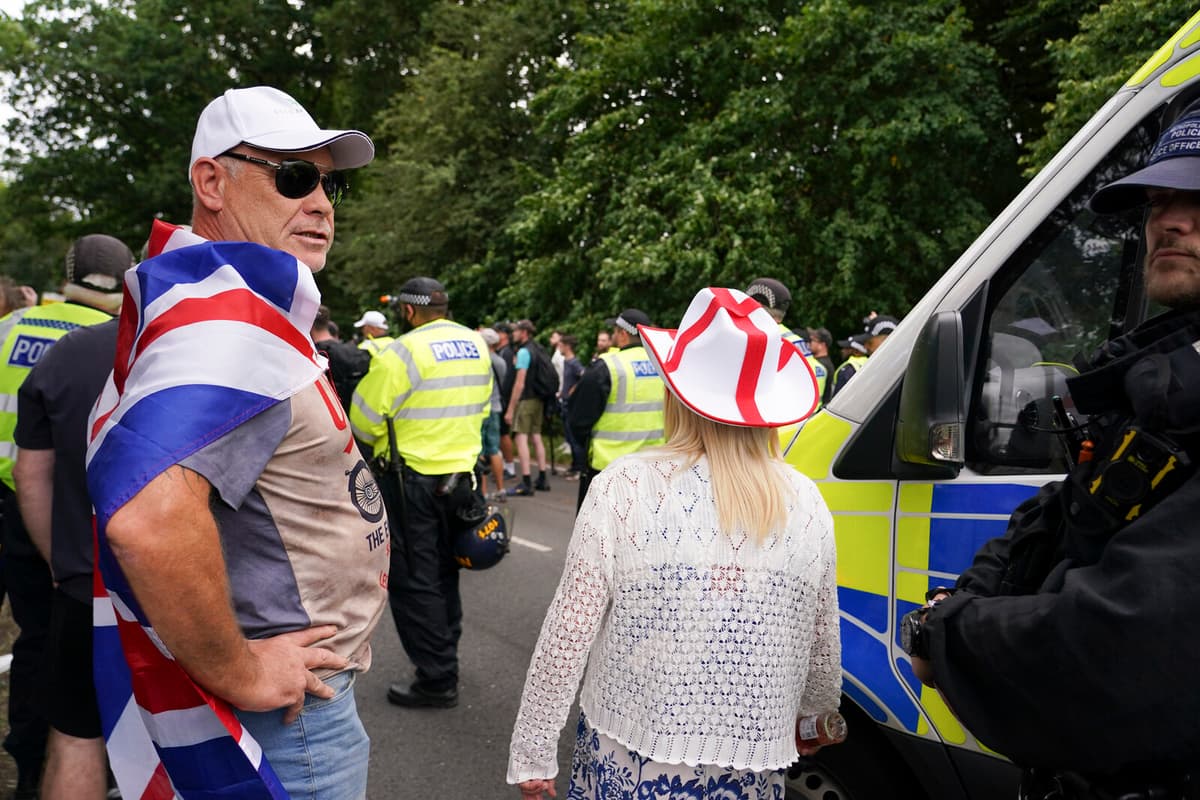The Reform Party, led by Nigel Farage, has strong support ahead of the British election next year. At the same time, Prime Minister Keir Starmer is struggling with declining opinion polls. The traditionally dominant parties have, according to many Britons, lost credibility when it comes to asylum issues.
The immigration issue is one of the biggest political stumbling blocks, and it is mainly about the migrants who arrive in the UK in small boats across the English Channel. The right-wing populist Nigel Farage criticizes both Labour and the Conservative Party for not having managed to stop the boats, while he himself promises mass deportations and border security.
"If the illegal (migrants) know they will be arrested and deported, they will stop coming directly," he tweeted last week.
Support from Starmer
In the summer, flags were waved extensively when the English women's national football team, "the Lionesses", won the European Championship gold. Now flags are waving everywhere, but now it's about pride and patriotism, according to some people who have put up flags, reports BBC.
In line with the online campaign "Operation raise the colours" - in Swedish roughly "Operation hoist the flag" - flags are being hung in street lamps and red crosses are being painted on white surfaces. The flag campaign has not been initiated by Nigel Farage's party, but he has not been slow to join in.
"Union flags (the UK flag) and St George's Cross will and will wave across the country. Reform UK will never shy away from celebrating our nation," he said recently in a statement.
Prime Minister Keir Starmer has also - in a more subdued way - expressed support. According to a spokesperson, he says that he "supports people who are proud of our flag, our history, and our values".
Demonstrations
Immigration-critical demonstrations have been held at hotels that serve as asylum accommodations, some with turmoil and arrests as a result, and with slogans such as "stop the boats" and "protect our children". Some, but far from all, participants are said to have links to right-wing extremist organizations.
Other residents have expressed discomfort, citing that the flags have also been used as a symbol for right-wing extremist movements.
42 percent of Britons see the flag campaign as a political statement against immigration, according to an opinion poll from the think tank More in Common. Around 60 percent of respondents want to see even more flags, reports Politico.






